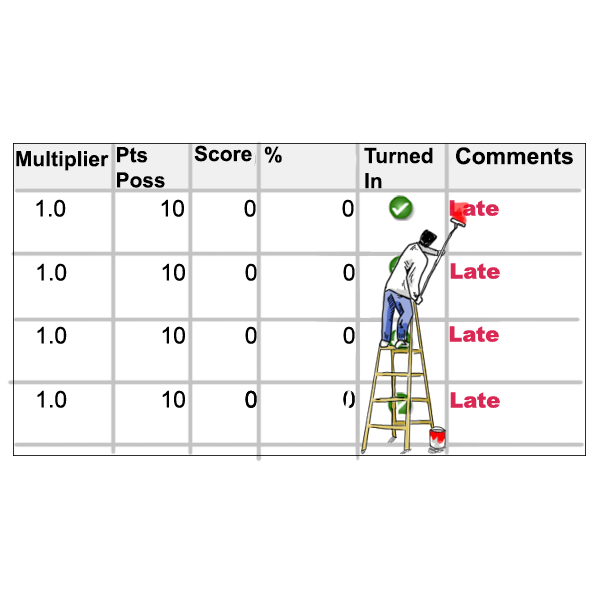New school-wide policy eliminates grade penalties for late work

May 16, 2018
UPDATE (May 16): Immediately following the publication of this article, Naperville Central principal Bill Wiesbrook sent an email to all staff to explain that the schedule for implementing a new school-wide late work policy had been changed.
“I feel it’s best practice to hold students accountable for lateness without penalizing the grade, but this will not be mandated next year,” Wiesbrook wrote in the email. “I encourage teachers and PLC course teams to consider penalizing students for lateness through detentions, parent contact, or other penalties outside of the grade.”
Wiesbrook confirmed to CT that a change from fall implementation to the fall of the 2019-20 school year occurred late last week, after our story went to print. As previously planned, building administration will spend time discussing the new policy with faculty at the May 29 institute day.
___________________________________
As of Aug. 17, a new late work policy will be implemented at Naperville Central. Every teacher, regardless of subject, will not be able to take off points for late work in the summative category.
“Right now the consequence for late work is determined team by team depending on the nature of their summative assessments,” Jackie Thornton, assistant principal for curriculum, said. “We are asking teams of teachers to still have penalties for late work, but that penalty cannot reduce a students grade.”
The result of this new change may mean students have to spend more time during or after school to make up the work.
“We could have, as an example, opportunities for teams of teachers to say this student doesn’t have the full privileges of a full 50 minute lunch period because they haven’t completed or turned in whatever the summative assessment is,” Thornton said. “Or the student has to go to this after school homework club essentially until that assignment it submitted. It’s almost like a detention.”
The leadership team at Central consisting of Principal Bill Wiesbrook, Activities Director Lynne Nolan, Student Services director Karen Lemanski, Assistant Principal of Operations Carrie McFadden, and Thornton decided to implement this change earlier this year in order to help students academically.
“At the end of first semester there were some parent and student issues that came to us as a leadership team that were examples of a student getting a C-plus instead of a B-minus and that difference being 10 percent that was deducted for the project being late,” Thornton said. “That was not the only example we encountered last semester that was counter to our grading beliefs.”
According to Thornton, the administration believes a student not turning in their summative work on time is a behavioral problem rather than an academic one, and students should therefore not be punished academically for it.
“[Your grade] should be what you’ve achieved in terms of the knowledge you possess,” McFadden said.
This policy change is just a small part of a much larger change coming to Central. It represents a shift from grade-based learning to standard-based learning.
“I don’t know how long it will take that shift to be implemented because there are other conflicting factors at the high school,” Thornton said. “The complicating factor is that we have to have a transcript and a GPA at the end so I’m not sure if we’ll go fully standard based the way junior highs and elementary schools have, or if we’ll have a different reporting system that does give an achievement grade that contributes to the overall GPA, but also gives us an opportunity to report the behaviors separate.”
All elementary and most middle schools are already seeing this change.
“At Lincoln, they are piloting standard-based grading [and] students do not get a grade penalty for late work either,” Thornton said. “Students get a lunch detention until the project or paper is submitted.”
In the future, the leadership team is working to continue to find ways to better help students.
“You’re going to see a lot of conversation in the years to come about time and about how we use the time in our day to best support kids and learning,” Thornton said.







